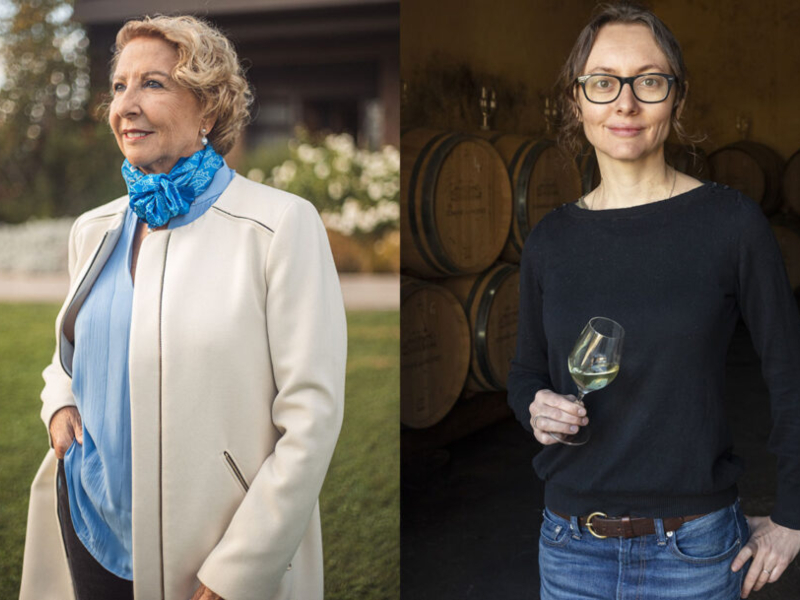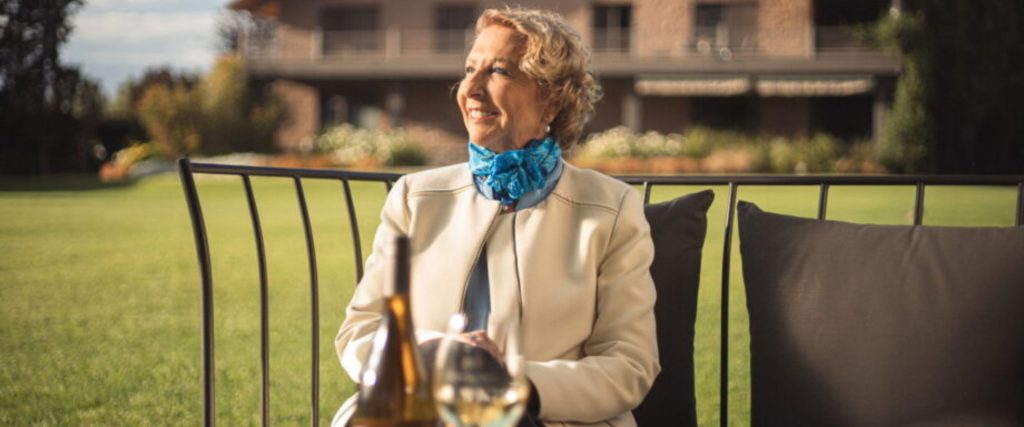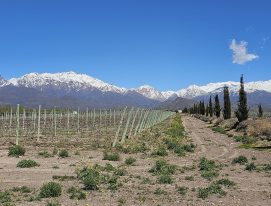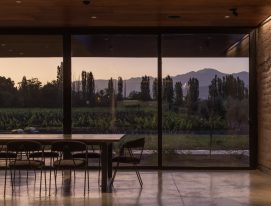With over 40 years’ experience in Argentine viticulture, Susana Balbo is still adding glorious new chapters to her story. The first woman oenologist in Argentina, and South America as a whole, she also became the first Argentine woman to be inducted into the prestigious Decanter Hall of Fame, an honor only granted to two other professionals from the region (the Argentine Nicolás Catena in 2009 and the Chilean Eduardo Chadwick in 2018).
As the British magazine noted, Susana Balbo “didn’t just break through the glass ceiling for Argentine women oenologists: she shattered it completely.” Throughout her career, she has opened doors into a profession that had previously been seen as the exclusive domain of men. At her first job working in a winery – Sucesión Michel Torino in Cafayate – she had to win out over 88 male applicants to get in.
Although she had initially planned to study nuclear physics, in 1981 she graduated as an oenologist from the Universidad Patagónica de Don Bosco, with a Diploma of Honor and a Gold Medal. She then embarked upon a long road whose first stop lay in Salta, where she earned the nickname “Queen of Torrontés”, before moving on to Mendoza, where in 1999 she founded her own winery: Susana Balbo Wines. From there, she continued what is today known as the “white wine revolution”.
Today, although she is still actively involved in the decision-making process for the blends, she runs the family company together with her children José and Ana Lovaglio, and the oenologist Edgardo “Edy” Del Popolo.
In 2019, the company partnered up with the North American fund L Catterton (part of the LVMH holding company and the Arnault group) to drive their presence in the luxury wine market. Susana Balbo plans much more in this segment than simply wines; in 2022 she opened Susana Balbo Winemaker ‘s House & Spa Suites in Chacras de Coria, the first Luxury Wine Hotel in Latin America.
In this interview, the winemaker Susana Balbo analyzes why she is now receiving so much international recognition, the state of her company today, the future of the wine market and how Argentina should adapt to new realities.
Interview with Susana Balbo
Why do you think you are receiving these major international honors now, at this stage in your career?
I can’t answer that, you’ll have to ask Decanter. But if you look at who else has been honored like this, and when, the only one from Argentina was Nicolás Catena back in 2009. When they gave it to Robert Mondavi, he had also been in the viticultural business for many years, as had Jancis Robinson. And if you look down the list of names, you’ll see Ángelo Gaja, Hugh Johnson … They’re all people who have been working for many years, very well-established, with incredible records, who have stood out in some way and aren’t halfway through their careers. They’ve made it.
Where do you think you are in your career?
I never thought I’d get as far as I have, so I feel as though I’ve made it. If you’d have told me, when I started out at such a young age at a winery, a new employee in a completely alien environment with new varieties I’d never worked with in Mendoza, that in 40 years I’d be here now, I would have laughed in your face, at the very least.
I never thought that I’d get to where I have. I think that when you’re very young you don’t have ambition; you just work, and work, and work. And then one day, and this has happened to me, you find yourself in the winery and you’re surprised by everything you have achieved. Sometimes I wonder where I got all that energy from (laughs). Someone once said to me, “it’s not that you love what you do, you just love to do.” And that’s true, because when I built a hotel, I did it with the same enthusiasm and passion with which I make wine. And it’s an area I’ve never worked in before.
I like to make things and think that’s what keeps me vivacious, energetic and full of dreams. If you ask me whether I feel complete, I’d say that I do, absolutely. But if you ask me whether I’m going to stop because I feel complete, then I’ll say no, I won’t stop. I’m going to keep building.
So what are you working on building today?
For the past 10 years now I’ve been focussing my company on the white wine revolution. We’ve planted a vineyard at 5200 feet (in San Pablo, Department of Tunuyán), all with white varieties. I have some very revolutionary technical projects for this vineyard but I won’t tell you about them now because, as I like to say, we mustn’t avivar giles (let in the scoundrels). My son and I will be implementing them.
You mention your son José and daughter Ana, who also work at the winery. How is the family project run today?
Today, my two children oversee 80% of everything that happens at the winery, together with Edy del Pópolo. My 20% is strategy, new ideas that I share with my son and the technical team. I do decide on all the blends, that hasn’t changed since I founded the winery, and I continue, of course, to represent the company across the world. Which is why I travel so much.
Susana Balbo and the future of viticulture

Given you spend so much traveling around the world, what is your view of the viticultural industry today?
It’s very challenging, but not just in Argentina, people here shouldn’t be discouraged, but everywhere. All the markets across the world are facing challenges, a very profound change is happening, and I’d say it’s because of the geopolitical situation. Two wars are happening simultaneously and there’s enormous uncertainty about where that will lead. That affects consumption behavior. Wine is a luxury product, it’s not essential like milk, for instance. It’s aspirational. Obviously it’s a product that is very susceptible to influence, like fashion, for instance. People are worried, and that makes them more conservative.
How are you dealing with falling consumption trends across the world? What opportunities do you think there are for Argentina in that context?
I don’t know if my colleagues agree with me, but I envisage Argentina with far fewer hectares under vine than today, but with a focus on very refined varieties and producing high quality wines. Focused on very high quality wine, because it’s a niche that never shrinks, or at least it does much less because people with plenty of disposable income aren’t so affected by the geopolitical context.
There are natural segments in the world, in every market, whatever the product. And that’s the segment that continues to grow. If Argentina wants to have a healthy viticultural industry then I envisage us focussing on producing better and better wines. I think that today Argentina is making the best wines in its history but I see it focussing even more on that, at least for the export market, because the internal market is significant and strong, we see that at every socio-economic level, so it’s likely that there’ll still be a space for table wines, mass-market wines, but it’s shrinking, just like everywhere else.
I envisage Argentina specializing by region, not area. We might start exporting grapes, like in Chile. There are no limits for us in that segment, nothing is preventing us from producing high quality grapes to export to Arabic countries, or Asian countries where consumption is high, or even the United States. Neither is there anything preventing us from starting to produce high quality must to export. The one key word in all this is “quality”. The mantra must be quality in the wine sector, whatever the level, because that’s the market that continues to grow, much more moderately than in the past but the others are shrinking more.
If you had to identify some of your career highlights, which do you see as being the most important for you?
The most difficult moments, when I had to draw on all my resilience, the conviction that “yes I can do this”, and overcome difficulties. Those are the moments when you learn from the pain, when you realize how vulnerable you are and that that vulnerability is a measure of your courage. The readiness to expose yourself and be vulnerable is the greatest expression of courage there is.



